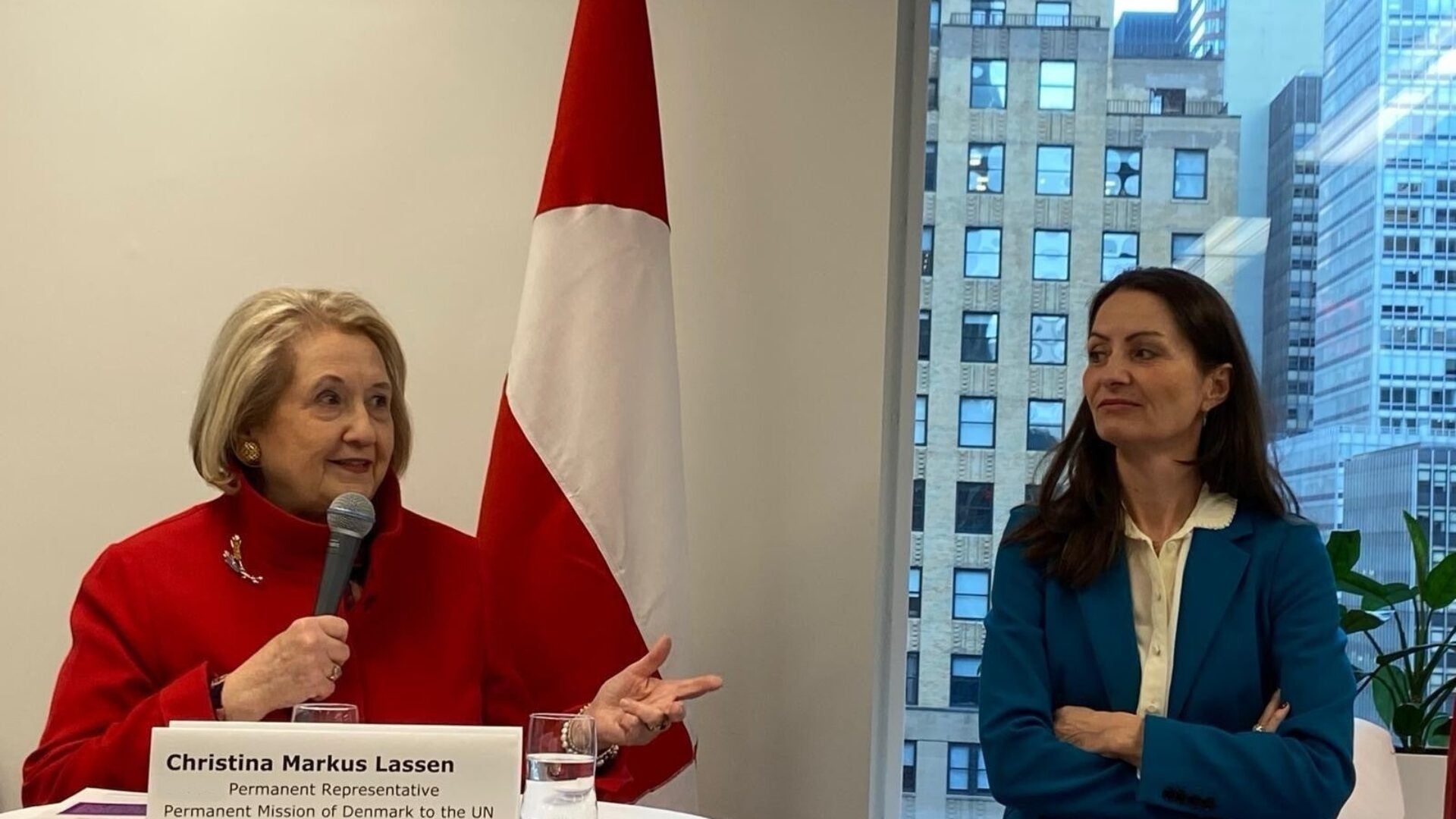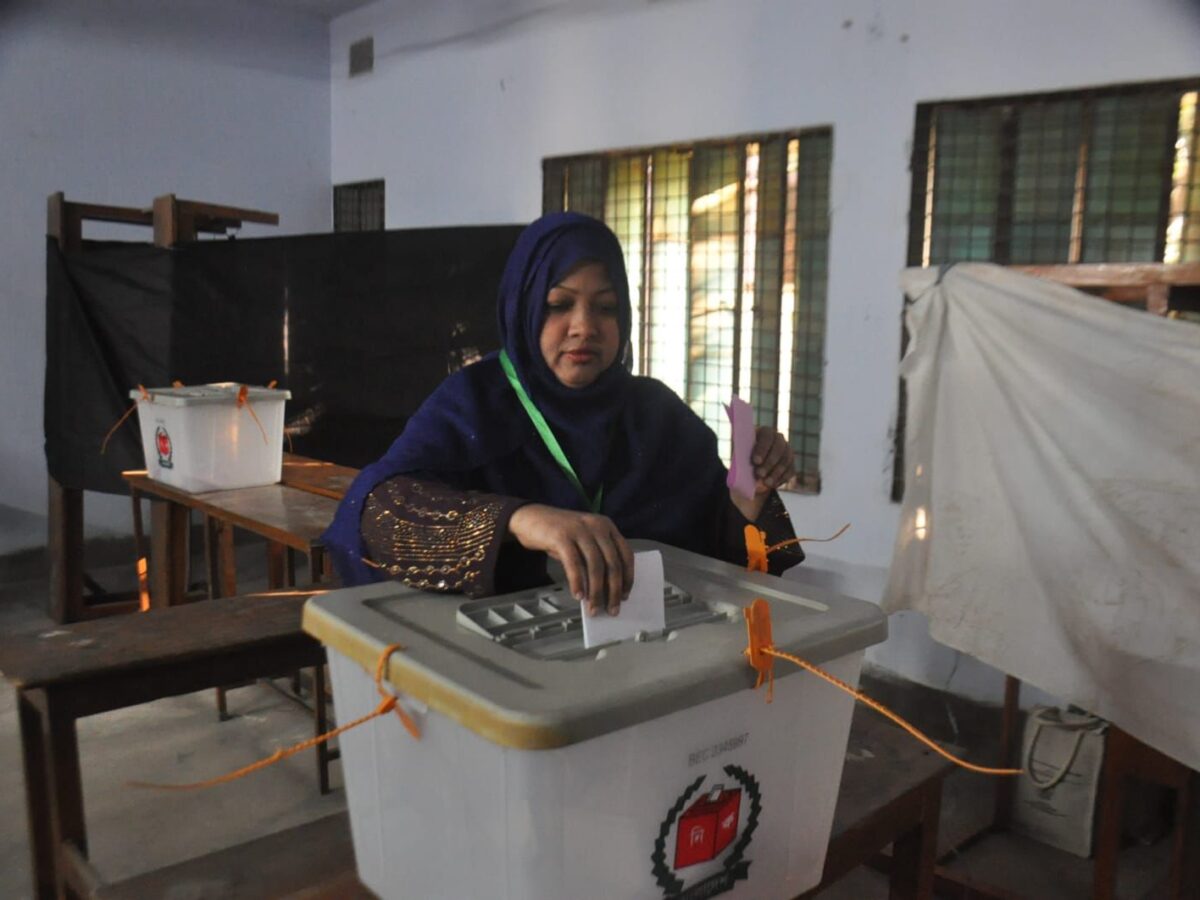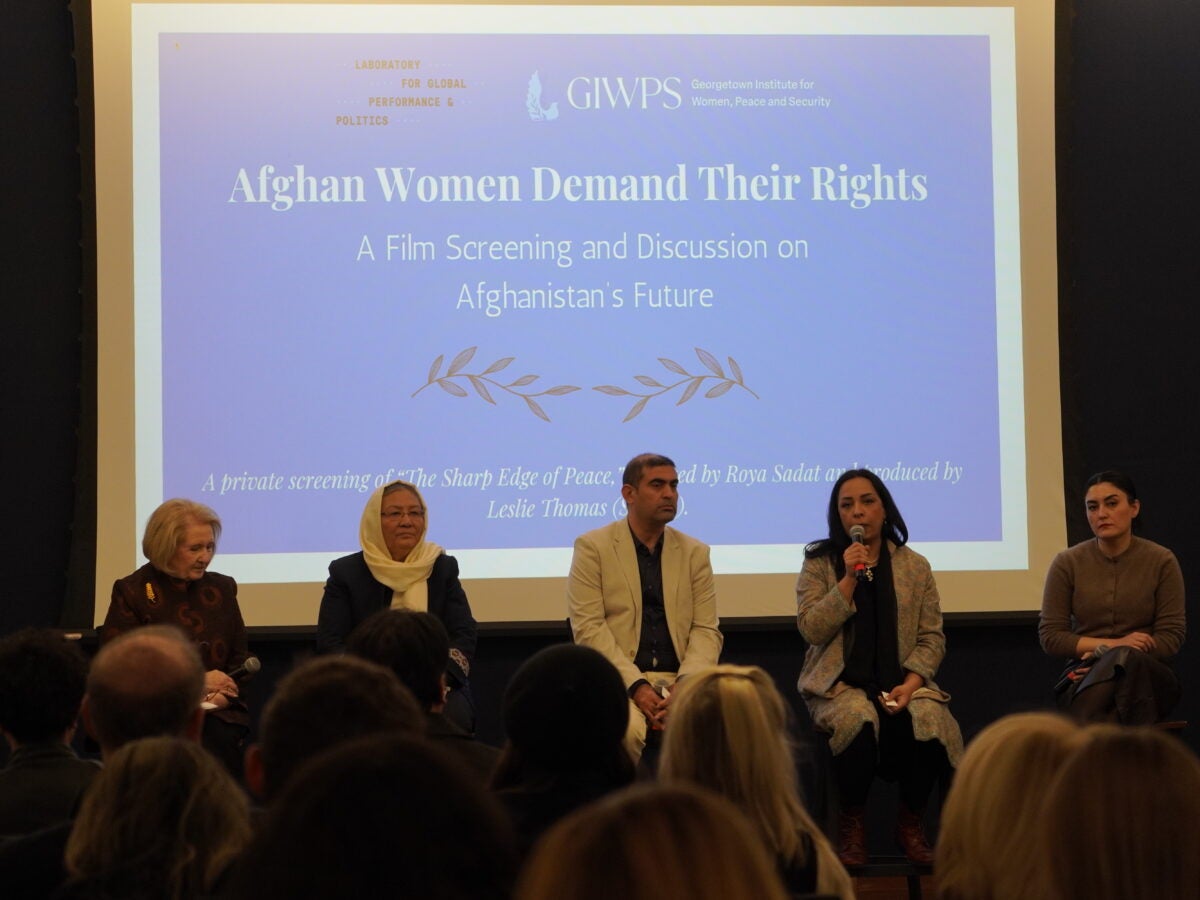Georgetown Launches Climate Study at United Nations, in Partnership with Danish Government

Against the headwinds of push-back on women’s rights and a retreat from climate commitments, strategic partnerships and bold leadership are more critical than ever to address gender, climate, and security at the highest levels. Denmark’s government has long been a champion of these issues–evidenced by their top ranking country on the 2023 Women, Peace and Security (WPS) Index–and now, as an elected non-permanent member of the UN Security Council (UNSC) from 2025-2026, they have made addressing the effects of climate change on peace and security and implementing the Women, Peace and Security Agenda some of the top thematic priorities for their UNSC term.
To drive progress on these key issues, the Georgetown Institute for Women, Peace and Security (GIWPS) published two new reports on the gender-climate-security nexus in partnership with the Embassy of Denmark in Washington, D.C., which were launched last week at a public event co-hosted by the Permanent Mission of Denmark to the UN in New York during the 69th Commission on the Status of Women.
Addressing Climate, Gender, and Conflict Holistically
The GIWPS reports outline practical guidance and policy recommendations for advancing gender, climate, and security in the UN Security Council and through national-level WPS implementation.
Experts from the UN, national governments, and civil society gathered at the launch event to discuss why it is critical to break down silos between WPS and climate that stifle collaboration and further strain resources. Participants urged Council Members to consider these issues in tandem, which includes the creation of expert groups in the UNSC focused on the intersection of gender, climate, and security and opens opportunities for Member States to coordinate joint pledges and joint messaging.
“Women are more disproportionately impacted by climate change, and they are also the first ones to suffer from gender-based violence because of it,” explained Maha Skah from the UN Department of Political and Peacebuilding Affairs during the event. “Women are also unique agents of change. They are already doing so much work to make their communities more resilient, and it is important that these two agendas complement each other.”
Prioritizing Gender and Climate Change in the UN Security Council
The UN launch event focused on a new GIWPS report, “Advancing Gender, Climate, and Security in the UN Security Council: A Blueprint for Action,” which offers entry points for enhancing integration of gender, climate, and security through priorities already on the Council’s agenda, including through language in country-specific mandates and resolutions.
In the panel discussion, Dr. Cristal Downing from International Crisis Group discussed the potential for relevant existing language in mandate resolutions on gender or climate change to be strategically used to mutually reinforce one another. Downing highlighted how the transfer of operations and responsibilities between the UN Assistance Mission in Somalia (UNSOM) and the UN Transitional Assistance Mission in Somalia (UNTMIS) present opportunities for the UN country team and relevant stakeholders absorbing activities around development and climate financing to do so in a way that is more responsive to gender.
Other key recommendations from the report include mainstreaming climate considerations in thematic resolutions on WPS, leveraging the presidency of the UNSC to elevate the links between gender, climate, and security by hosting debates and Arria-formula meetings, inviting women from climate-vulnerable contexts to brief the Council, and harnessing regional alliances and partnerships to accelerate integrated action.
Making WPS National Action Plans More Responsive to Climate Risks
GIWPS also released a report on “Practical Guidance for Integrating Climate into WPS National Action Plans,” demonstrating how National Action Plans (NAPs) on WPS can meaningfully address climate change in national-level WPS implementation. At the launch event, Permanent Representative of Denmark to the UN, Ambassador Christina Markus Lassen, proudly announced that Denmark’s fifth National Action Plan on WPS will be informed by this critical research from GIWPS. The updated NAP will be Denmark’s first to address climate change when it is released in April 2025.
The Honorable Esther Ikere, Undersecretary for Gender, Child and Social Welfare in South Sudan, spoke to how the intersection of gender, climate and security informed a review of South Sudan’s first NAP. This resulted in the recognition of climate change as a security threat and comprehensive mainstreaming of climate change across all four pillars of the WPS Agenda.
Panelists urged the robust and meaningful participation of civil society both in briefing the Security Council and in capacity-building at the national and local levels through the NAP. “A plan without funding is just an idea,” highlighted Dr. Jasmin Nario-Galace, emphasizing the need for greater investments in local leadership and the inclusion of women in locally-led solutions.
At a critical moment for gender equality and climate action, the 25th anniversary of the Women, Peace and Security Agenda and COP30 this year present a pivotal opportunity to ensure approaches to addressing security challenges like climate change are inclusive and gender-responsive. As Dr. Jasmin Nario-Galace stressed during the panel discussion, “milestones mean little without action.” Together, these reports provide blueprints for UN Member States to take concrete actions toward a more integrated and strategic approach to addressing gender, climate, and security that can deliver more effective results for women facing worsening climate-related security risks around the world.
A recording of the launch event is available to watch here.
Explore More

Reassessing Bangladesh’s National Election 2026
The Constitutional Referendum and General Election held on 12 February 2026 was…

Afghanistan’s new laws give animals ‘more rights’ than women

A Community Holding onto Hope: Georgetown Screens Documentary on the Fight for…
When the Taliban took over Afghanistan after U.S. troops withdrew in 2021,…